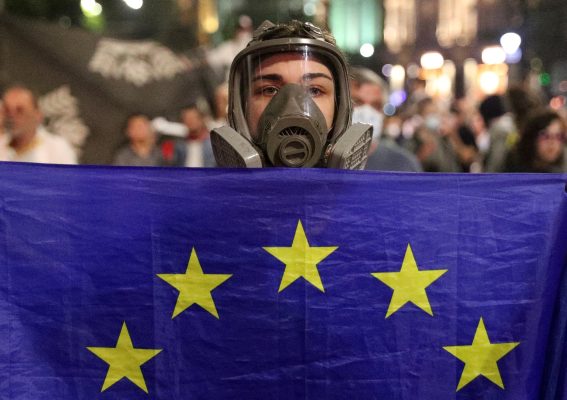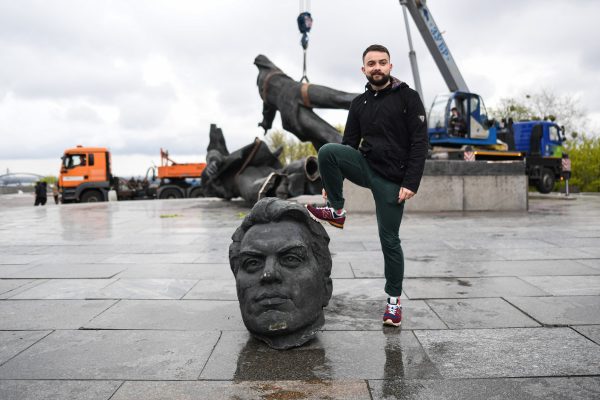Summary
Embedding proper corporate governance practices into Ukraine’s state-owned enterprises (SOEs) has been key to cementing reforms made since the Revolution of Dignity in 2014, such as the deregulation of energy markets or the liberalization of the banking sector. As Ukraine prepares for postwar reconstruction, which will inevitably require international financial support, the need to improve transparency and consolidate the independence of SOEs to minimize the risk of corruption takes on new urgency.
This paper draws on the work of CEPA’s Democratic Resilience Program and European Energy Security Working Group, through extensive interviews and documentary research, as part of the institution’s broader focus on Ukrainian resilience and recovery. It stresses the need to ensure the independence of energy SOEs and the accountability of supervisory and executive boards as a guarantee for the integrity of future investments and reform.
The analysis starts off with an outline of the evolution of corporate governance reform in Ukraine following the dissolution of the Soviet Union in 1991, including a description of the international standards that helped shape initial practices and the challenges in adopting them across state-owned enterprises.
The discussion focuses on energy SOEs as some of the most profitable state companies and is backed up by four case studies illustrating the achievements and the difficulties in implementing corporate governance standards before and after the start of Russia’s all-out invasion in February 2022.
The first case study shows how the oil and gas incumbent, Naftogaz, which had been selected as a flagship for corporate governance reform, was repeatedly subject to political interference, often aligned with vested oligarchic interests, particularly under the predecessors of the current president, Volodymyr Zelenskyy. The introduction of martial law has led to a concentration of power, granting Naftogaz a monopoly in the natural gas sector, which although justified by security constraints, raises questions about Ukraine’s commitment to establishing a competitive energy industry.
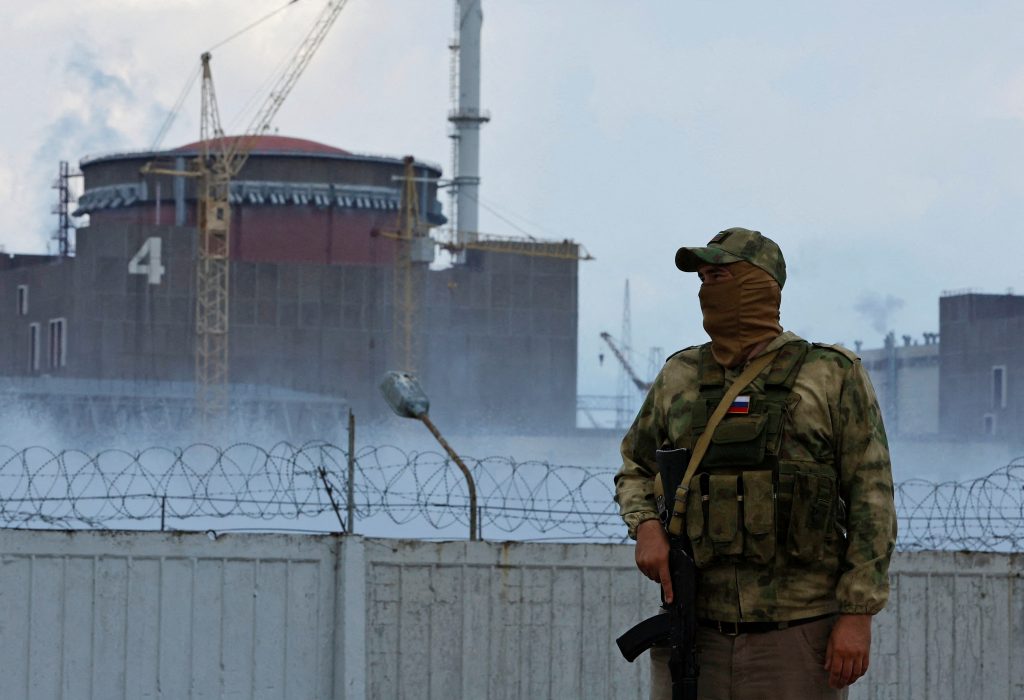
The second case study turns to the idiosyncratic corporate governance structure of the gas transmission system operator, GTSOU, and the difficulties that its complex ownership has created, potentially jeopardizing its certification as an independent company and even its ability to continue transiting Russian gas to Europe. Political attempts to interfere with its activity have led to a series of dismissals and resignations of board members and executives. Nevertheless, new legislation reflecting benchmarks set by international financial institutions is expected to correct some of its structural flaws and grant greater protection from political intrusion.
The third case study highlights electrical grid operator Ukrenergo, which is central to Ukraine’s reconstruction efforts and the country’s goals to integrate with the wider European electricity infrastructure. Despite its importance, and even as Russian missiles targeted the transmission system in recent months, the company’s ability to act decisively has been affected by a year-plus vacancy on its supervisory board that left it without a qualified majority. Because of the vacancy, independent members could not form a majority of the board, failing to meet the requirements of the law or Ukrenergo’s charter.1 Furthermore, the panel had not had a chairperson until the end of August 2023 when one of the existing independent board members, Daniel Dobbeni was elected, helping to sway the balance of votes in favour of the independents as the vote of the chairperson counts twice.
Finally, the fourth case study describes the steps taken to incorporate the nuclear power producer, Energoatom, which will be at the heart of efforts to rebuild the energy system once the war ends. As part of the corporatization process, intended as a safeguard against corruption, the government aims to appoint a supervisory board before the end of the year. Still, the war and related difficulties, including Russia’s occupation of the Zaporizhzhia power plant, have slowed down the process so that Energoatom has missed key deadlines set by international financial institutions.
Based on these case studies, this paper offers the following findings:
- Tightening up corporate governance rules in energy SOEs, which are likely to attract large funds, should be a priority for the Ukrainian government and international donors.
- Some important steps have been taken, but corporate governance safeguards in Ukraine’s largest energy SOEs2 remain weak. The sector is witnessing a concentration of political power — arguably justified by the current extraordinary security concerns and the imposition of martial law — even as the influence of some oligarchic interests may be receding.
- However, recent developments at Ukraine’s top energy SOEs and interviews with Ukrainian and Western stakeholders3 suggest that rather than guaranteeing the security of the sector, the increased political interference may put it at risk, potentially leaving it ill-equipped to receive international assistance.
- Civil society, domestic and international energy companies, and international financial institutions continue to push for more transparency and accountability, and for tighter corporate governance rules and practices.
Background
The adoption of corporate governance rules in Ukrainian SOEs was meant to promote their efficient management, minimize corruption, depoliticize the decision-making process, and allow the citizens of Ukraine — the ultimate owners of the SOEs — clear insight into their performance.4
The earliest steps were taken in 2003, when the National Securities and Stock Market Commission, which polices capital markets, released Ukraine’s first corporate governance principles,5 which were subsequently revised in 2008 and 2014 and are based on the Organisation for Economic Cooperation and Development (OECD) principles of corporate governance for publicly traded joint stock companies.6
Corporate governance refers to a system of rules and practices that determine how a company is controlled and how its objectives, and the means of attaining them, are set. It involves a set of relationships among a company’s supervisory and executive boards, shareholders, and stakeholders, and guides every sphere of management, including financial reports, contracting, listing rules, and voluntary commitments.
Basic principles of corporate governance include accountability, fairness, responsibility, risk management, and transparency, which are nonbinding, but adopting and implementing well-designed corporate governance policies based on these principles can help companies tap international capital markets, build trust with investors, and provide guidance for long-term success. Corporate governance standards can apply in the private sector as well as to SOEs, whose distinct challenges can include political interference, leading to unclear lines of responsibility, a lack of accountability, and inefficiency, or a lack of oversight due to passive state ownership.
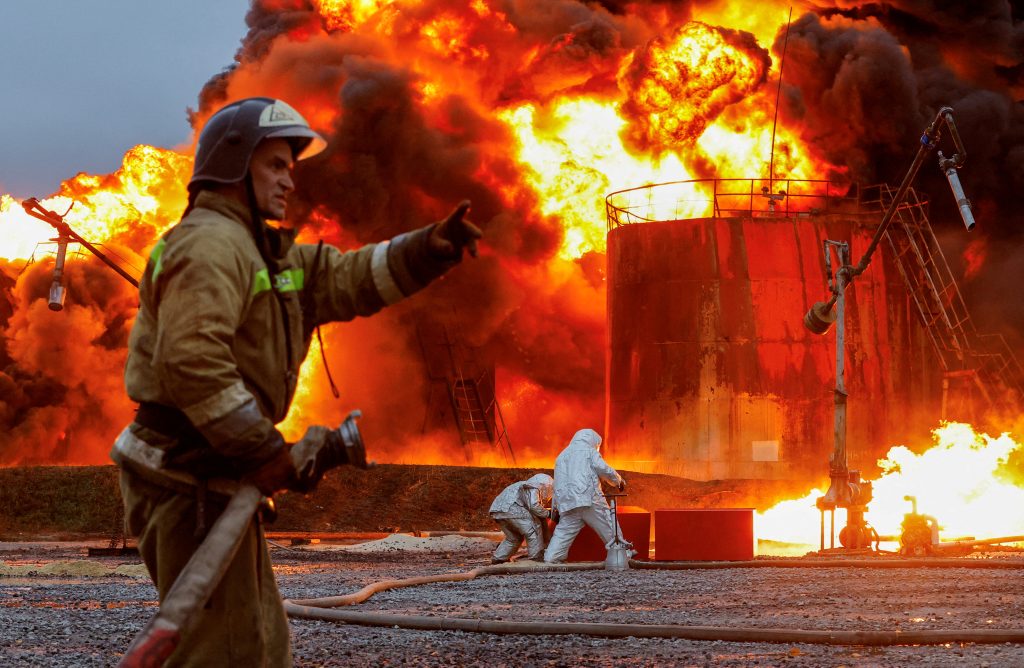
The OECD recommends the following best practices for governments that own SOEs7
- Develop an ownership policy for SOEs to maximize value for society, which should be subject to appropriate political accountability and disclosed to the public.
- Ensure that the governance of SOEs is transparent, accountable, professional, and effective.
- Guarantee a level playing field and fair competition in the marketplace when SOEs undertake economic activities.
- Where SOEs are publicly listed or otherwise include nonstate owners, the state and the enterprises should recognize the rights of all shareholders and ensure shareholders’ equitable treatment and equal access to corporate information.
- Request that SOEs report on their relations with stakeholders and be clear about expectations for responsible business conduct by SOEs.
- Ensure SOEs observe high standards of transparency and abide by the same accounting, disclosure, compliance, and auditing standards as listed companies.
Failure to follow these rules can lead to poorly structured boards, increased political interference, clashes with auditors, and noncompliant financial reporting, among other issues.
While some principles are fundamental, corporate governance models can differ across various economies. For example, the Anglo-American model privileges the interests of shareholders and typically relies on a single-tiered board that is normally dominated by non-executive directors. Under this arrangement, it would be the shareholders who would appoint the CEO of a socially owned enterprise. The Continental model, seen in countries such as Austria, Germany, and the Netherlands, weighs the interests of multiple stakeholders, including managers, workers, suppliers, and customers. Some countries that champion this model require a two-tiered board of directors made up of executive and supervisory boards.
Ukraine has a two-tiered system, which would typically mean the supervisory board would hire or fire the CEO, although the government has used legal loopholes to maneuver around that and there is a precedent in 2021 when the government suspended the company’s board for 48 hours and directly fired the CEO. SOEs or any company that wants to be listed in Ukraine are supposed to comply with the rules and practices formulated by the OECD8 to ensure accountability and transparency, but that does not always happen, for reasons that are by no means particular to Ukraine:910
- Ukraine was traditionally a hierarchical society, with decisions made subjectively by leaders (the Communist Party, oligarchs, politicians) rather than based on objective criteria.
- There is a general lack of understanding of corporate governance, which is seen as an imported concept.
- Vested political and oligarchic interests have seen the introduction of independent supervisory boards with the power to appoint CEOs or approve SOEs’ budgets as a threat.
Over the years, these factors have given root to crony capitalism, characterized by a high concentration of capital in the hands of a few business owners who have benefited from strong political connections, fragile institutions, and a weak rule of law.11 The alignment of big business and political interests has endured for years, encouraging rent seeking over general wealth creation12 and lucrative energy SOEs have been particularly vulnerable to predatory oligarchs. Oligarchs long used an opaque procurement system or market-distorting subsidies to line their pockets, but the Revolution of Dignity of 2014 and the ensuing reforms, which set Ukraine on a Westerly course, put a stop to some of that, including in the energy sector, hitherto seen as one of the biggest sources of corruption.13 The alignment of big business and political interests has endured for years, encouraging rent seeking over general wealth creation14 and lucrative energy SOEs have been particularly vulnerable to predatory oligarchs. Oligarchs long used an opaque procurement system or market-distorting subsidies to line their pockets, but the Revolution of Dignity of 2014 and the ensuing reforms, which set Ukraine on a Westerly course, put a stop to some of that, including in the energy sector, hitherto seen as one of the biggest sources of corruption.13 The alignment of big business and political interests has endured for years, encouraging rent-seeking over general wealth creation14 and lucrative energy SOEs have been particularly vulnerable to predatory oligarchs. Oligarchs long used an opaque procurement system or market-distorting subsidies to line their pockets, but the Revolution of Dignity of 2014 and the ensuing reforms, which set Ukraine on a Westerly course, put a stop to some of that, including in the energy sector, hitherto seen as one of the biggest sources of corruption.15
As a contracting party of the Energy Community — an international institution working to extend the EU’s internal energy market to neighboring nonmember countries — Ukraine committed to aligning its electricity and gas market rules with those of the EU a decade ago. To some early success, officials introduced corporate governance reforms in energy SOEs to cement key structural changes, although the process faltered in its implementation.
Interviewees reported that corporate governance reform was pushed through by a handful of specialists who had been educated abroad or worked for international law firms, as well as by international financial institutions. Domestic policymakers, they said, had a vague understanding of the concept, which ironically, might have been one reason the government of Arseniy Yatsenyuk willingly rolled out OECD corporate governance standards at the end of 2014. Andriy Boytsun, a specialist who helped promote and draft corporate governance guidelines, said the concept sounded “abstract, more like a declaration of human rights,” which meant politicians did not perceive it as a threat, but thought that embracing it would smooth negotiations with international financial institutions.
In 2015, the European Bank for Reconstruction and Development and the European Investment Bank agreed to collectively loan €300m ($336m at the time) to the gas incumbent, Naftogaz, for repairs to the major Urengoy-Pomary-Uzhhorod pipeline in exchange for reforms to the gas market and in corporate governance at Naftogaz and the then-gas transmission operator, Ukrtransgaz.16
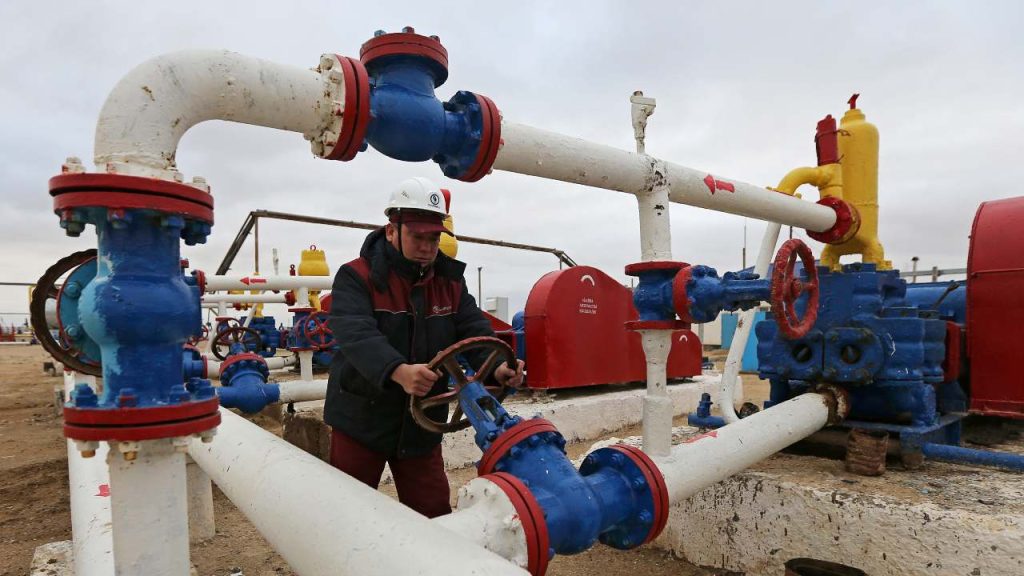
Boytsun said several proposals, including the introduction of supervisory boards with a majority of independent members, were adopted without opposition, as they were not perceived as a risk to political or oligarchic interests.17 Other proposals, however, such as empowering supervisory boards to appoint CEOs and approve SOEs’ budgets, encountered too much opposition to be included in legislation.
Subsequent events, including multiple changes in governments, Zelenskyy’s election in 2019, and Russia’s all-out invasion in February 2022, had a stop-and-go effect on the implementation of corporate governance standards in energy SOEs. Boytsun noted that former president Petro Poroshenko greenlighted the primary legislation on corporate governance in 2016 only after Ukrainian defense state-owned enterprise Ukrboronprom was excluded over national security concerns.18
Then under the government of Prime Minister Volodymyr Groysman, from 2016 to 2019, political pressure appeared to slow the process. For example, when Naftogaz struggled to get upstream production licenses, then-CEO Andriy Kobolyev complained that Groysman’s government favored private producers over Naftogaz, and hinted at corruption.19
With the election of Zelenskyy in 2019 and, in particular, following the appointment of Prime Minister Denys Shmyhal’s government in 2020, political pressure on Naftogaz abated. Interviewees said the incumbent could once again get production licenses and noted that the government even temporarily supported the deregulation of gas prices for households and heating companies, paving the way for a free market, independent of political intervention.
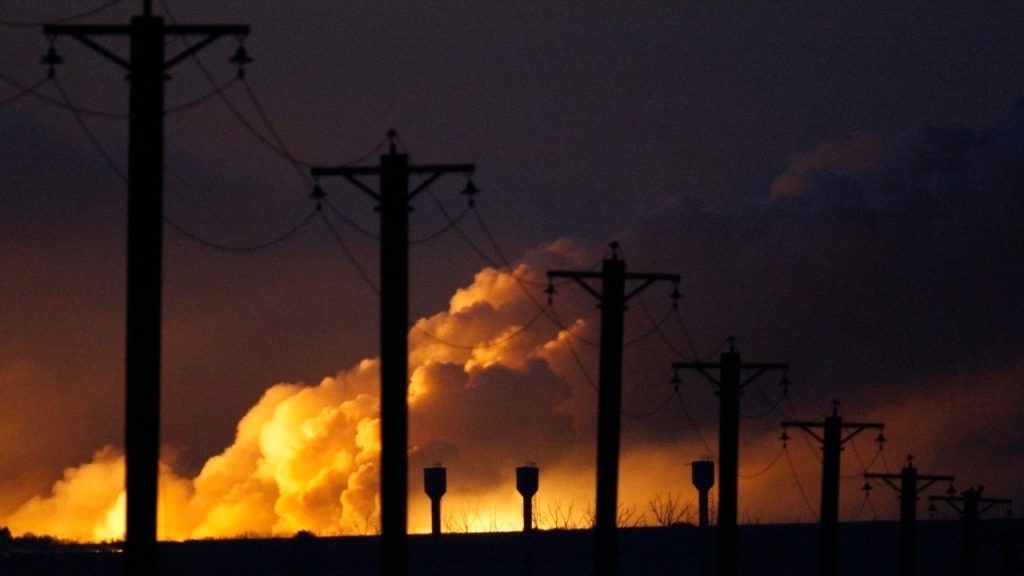
Circumstances changed again with Russia’s full-scale invasion in February 2022, when the energy sector saw a concentration of power following the introduction of martial law, with one interviewee close to the government noting that politicians saw energy SOEs as “resources to hand,” akin to troops or equipment, that could be mobilized as part of the war effort. Despite wartime conditions, there are encouraging signs of reform in the corporate governance structure of the gas transmission system operator, GTSOU, after legislation was adopted at the end of July 2023 to meet conditions imposed by the International Monetary Fund (IMF). Also, this year, the government is expected to complete the corporatization of state-owned nuclear producer Energoatom.
All in all, Ukrainian and international observers see a mixed bag, noting that even though supervisory boards were introduced at Naftogaz, Ukrenergo, and GTSOU, they were never fully independent or enabled to make decisions on issues such as the appointment of CEOs or companies’ budgets.
Who Pulls the Strings
The major difference in SOE governance before and after the start of war in February 2022 is that prewar political interference, in particular under Groysman’s government during Poroshenko’s presidency, tended to align with entrenched oligarchic interests,20 whereas now the influence of some once-dominant oligarchs, such as Ihor Kolomoisky and Dmytro Firtash, has waned while political influence has waxed.
Notably, the government recently seized Kolomoisky’s 42% stake in the country’s largest oil company, Ukrnafta,21 and seized or froze assets held by Firtash, a Kremlin-backed fugitive from Ukraine, amid allegations of embezzlement.22
In another example, a Ukrainian journalist23 has chronicled the increasing influence of a network of top officials, including in the president’s office, the Energy Ministry, and the NEURC energy regulator, over the energy industry.24 Although many in this network worked at an international steel and mining group controlled by Ukraine’s richest man, Rinat Akhmetov, it is unclear if his interests are behind this coalescence. Rather, it is likely a shift in control of strategic industries from an entrenched oligarchic class to a small political elite in response to wartime exigencies. Russia’s systematic destruction of some oligarchs’ industrial assets has helped to weaken their influence over SOEs, while the introduction of martial law at the start of the invasion has given extensive powers to top functionaries.
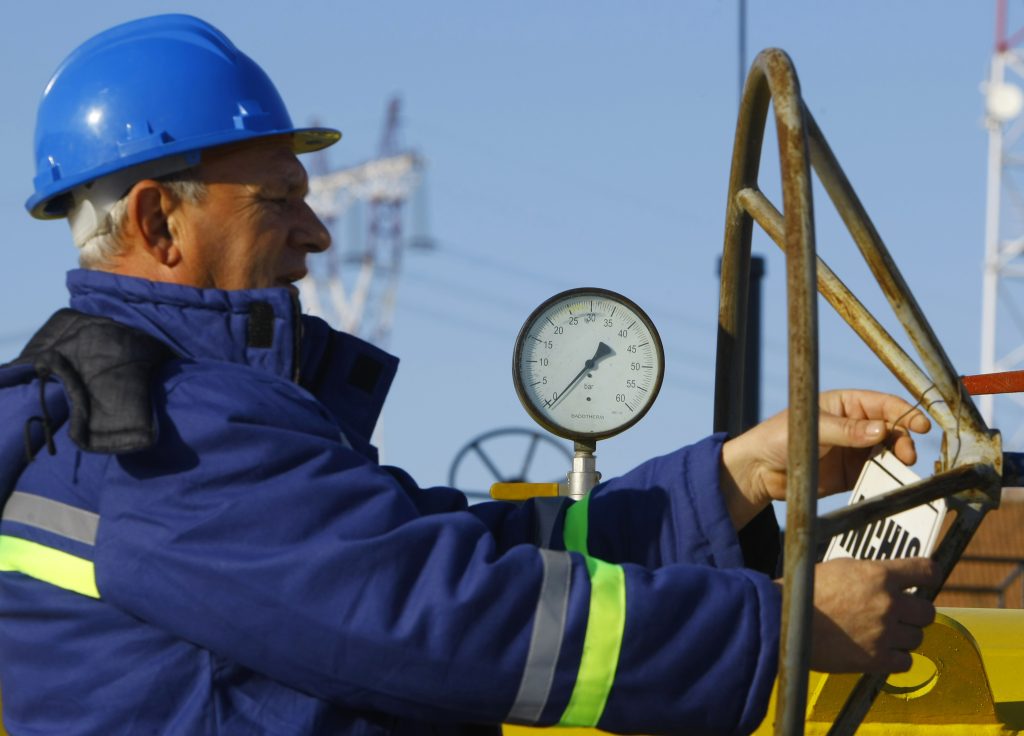
With international institutions prioritizing the war efforts and paying comparatively less attention to corporate governance, the stability of energy SOEs could be undermined by political interference with their nominally independent supervisory boards and observers say Zelenskyy may not be aware of the importance of corporate governance rules for SOEs. Interviewees acknowledged that under the current harrowing circumstances, increased political influence over strategic sectors such as natural gas and electricity are mostly understandable, but they worried that without greater transparency and the adoption of corporate governance rules, and penalties for violations, postwar reconstruction of the industry will falter. They noted that breaches of corporate governance rules currently carry no criminal or civil liabilities and that boards’ performance is not subject to public scrutiny despite their members’ high salaries. They also said anti-corruption authorities may have been targeting reformers25 rather than those who misappropriated funds.
The Challenges of Rebuilding
- Regardless of how quickly the war ends, Ukraine’s energy sector faces multiple challenges, including attracting hundreds of billions of dollars to rebuild its electricity infrastructure, half of which has been destroyed by Russian missile attacks.26
- The country’s gas industry also needs to rethink its role, as nearly six decades as the main transit route of Russian gas to Europe comes to an end with the expiration of the current contract with Gazprom at the end of 2024.
- Ukraine will need to break its historic addiction to coal-fired power plants in keeping with its commitment to become a net-zero-carbon economy by mid-century. All these challenges require comprehensive reform, whose success will depend on the transparency and ability of SOEs to see it through.
SOE Case Studies
Ukraine’s first post-Soviet attempt at privatization in 1992 was a fiasco as opaque sales to well-connected buyers at depressed prices soured the public on the program, and the government retained control of 3,293 SOEs, less than a third of which have turned a profit in recent years.27
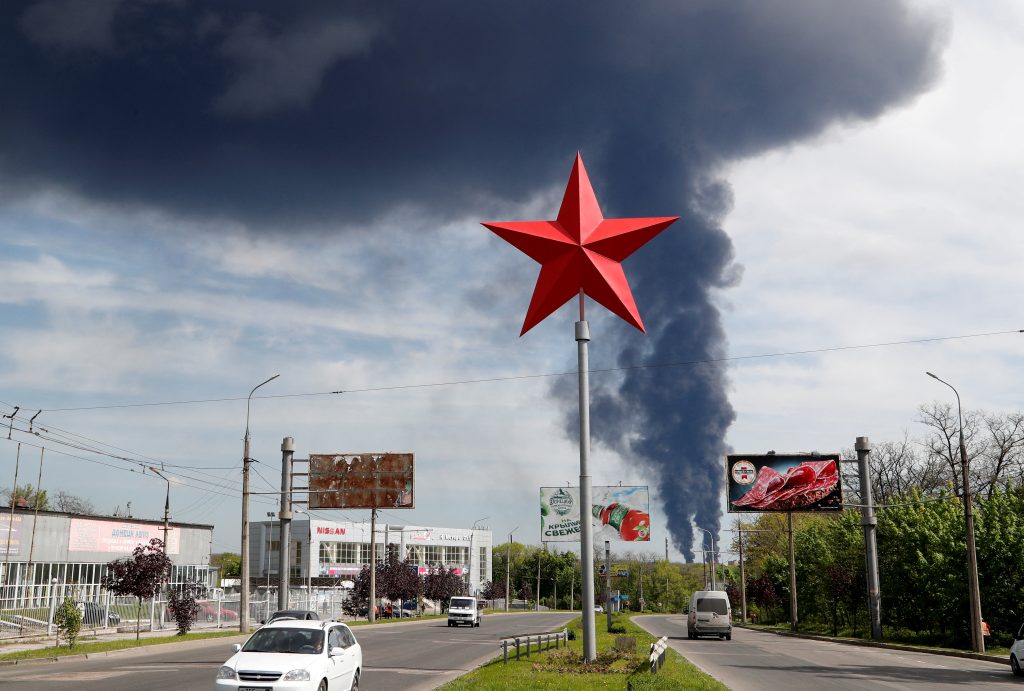
Although most SOEs are in agriculture and manufacturing, the most profitable are in the energy industry. According to a 2021 OECD report, 18 SOEs in oil, gas, and electricity have remained some of the most profitable, with oil and gas incumbent Naftogaz driving much of the revenue.28 Given its importance to the economy, Naftogaz was chosen as a flagship for corporate governance reform, followed by other energy SOEs, such as the gas and electrical grid operators, which are critical to the stability of the energy sector.
Despite achievements such as the establishment of independent supervisory boards, SOEs remain vulnerable to political interference, with board members either resigning amid complaints of political obstruction or being dismissed, often in disregard of corporate governance practices adopted by those SOEs. Making structural changes in a society where rent-seeking has been endemic and where there has been a historic mistrust of state institutions will be very difficult but not impossible.
On a positive note, interviewees said the country was already on a path to irreversible change, as the powers of established oligarchs have been shrinking as their industrial base has been destroyed during the war. Meanwhile, civil society is becoming increasingly aware of the need to shore up the credibility of state institutions, and, despite the difficulties of the war, Ukraine has moved up the ranks of Transparency International’s most recent Corruption Perceptions Index.29
Since the Revolution of Dignity in 2014, Ukraine has made important steps to establish a transparent procurement system, an asset-declaration system, and a public database of top politicians and officials, or politically exposed individuals, to help banks or potential business partners conduct due diligence.30 Advances in digital technology may speed the process, as an emerging class of Ukrainian entrepreneurs develops tools to monitor all funds that are likely to pour in, enhance transparency, and improve accountability across the board. Ukraine’s international partners also understand that the country’s reconstruction and successful bid for EU membership hinge on curbing corruption and restoring trust in government institutions, including SOEs.
In fact, dozens of international energy companies surveyed by the author say they are keen to do business with their Ukrainian counterparts, make use of the country’s vast natural gas storage facilities, or invest in renewables there. They acknowledge the physical risk to infrastructure posed by Russian missile attacks but say an equally significant risk lies in Ukraine’s political meddling in the energy sector.31
The government and international donors are working to develop war-risk insurance to protect assets, but international financial institutions say Ukraine must also stabilize and elevate corporate governance. The Energy Community, which since the Revolution of Dignity has been helping Ukraine reform its electricity and natural gas markets, has recently begun monitoring all legislative changes affecting the industry and corporate governance in energy SOEs.32 At the legislative level, Ukraine has established anti-corruption bodies, although recent cases that targeted high-profile reformers, including a former CEO of Naftogaz, have raised questions about their motivations and effectiveness.
The case studies below track the evolution of corporate governance reform in four key energy SOEs, highlighting the achievements to date but also the problems that have become evident since the start of the war and the imposition of martial law.
Naftogaz
Naftogaz is a successor to the State Committee of Oil and Gas, which was established in 1993 under the Cabinet to control all state-owned oil and gas companies. After the failed privatization process of the 1990s, Naftogaz was established in 1998 as a joint stock company. In addition to Naftogaz itself, the umbrella Naftogaz Group includes seven other joint stock companies, nine subsidiaries, seven representative offices, and fully owned affiliates, as well as shares in other companies.33 In other words, its business extends from upstream oil and gas production to gas storage operations, oil transportation, and wholesale and retail trading.
Long a major source of corruption and particularly vulnerable to Russian influence, Naftogaz has been at the forefront of the government’s corporate governance reform. Although it has made progress since its first corporate governance charter was adopted in 2014, including winning a multibillion-dollar arbitration ruling against Gazprom in 2018, the company remains vulnerable to political influence.
The attacks continued after the election of Zelenskyy in 2019 and culminated in April 2021, when the government dismissed the supervisory board and the CEO only to immediately reappoint the board.34 The move flouted an amendment to Naftogaz’s corporate charter giving the xboard hiring and firing authority over the CEO that had been a structural benchmark set in 2020 by the IMF as part of a $5.5bn stand-by aid agreement and Clare Spottiswoode, a respected expert on the European gas industry who chaired the supervisory board, said the maneuver “made a mockery of corporate governance rules.”35 Yuriy Vitrenko, the CEO appointed by the government shortly afterward, defended the government’s decision, citing performance concerns linked to the outgoing CEO and the dismissed supervisory board. But the appointment of Vitrenko, who was acting energy minister before taking the helm of Naftogaz, was seen as going against a requirement that civil servants who leave their government posts wait one year before accepting an SOE position. In any event, Vitrenko’s tenure was short-lived and he resigned in November 2022 as a government edict that Naftogaz sell gas to consumers at lower rates than its competitors drove it to the edge of default.36
Naftogaz’s first independent supervisory board was appointed in the spring of 2016, with three international independent members and two government representatives, only to wind down in September 2017 as members resigned in protest over political interference from Groysman’s new government.37 A new board was appointed, made up of four independent members and three government representatives, but the political interference continued, targeting not only board members but also Kobolyev, the CEO, who quipped that it had become difficult to keep count of the prosecutions instigated against him and the company.38
The government appointed his replacement the same month, four months ahead of the selection of a new supervisory board, which interviewees noted was yet another violation of the company’s amended charter. If before the war political influence over SOEs aligned with vested oligarchic interests, the introduction of martial law in the wake of Russia’s all-out invasion in February 2022 may have also emboldened the ruling elite to use Naftogaz to tighten its grip on the gas market. For example, Naftogaz has been historically obliged to sell gas to household consumers at prices well below the market. A few years ago, Naftogaz management began looking into whether regional gas suppliers owned by Firtash had bought some of that discount gas, ostensibly to sell it to household consumers, but instead sold it to commercial customers, who pay higher rates, and pocketed the difference.39 Last year the government seized or froze some of the assets of Firtash’s Regional Gas Company and placed them under the control of Naftogaz as part of a criminal investigation, effectively cementing the role of the incumbent in the market.40

The introduction of martial law has given Naftogaz a monopoly in the market, while the government has banned the export of Ukrainian gas to premium European hubs, putting private producers in a bind. Energy companies in Ukraine want the market to be reopened and the reforms spurred by the Revolution of Dignity in 2014 to continue, but some interviewees said reformers may be unwilling to step forward amid fears that they will become targets of anti-corruption bodies seeking to prove themselves.
Kobolyev, the Naftogaz CEO dismissed during the board’s suspension in April 2021, offers a cautionary example. Under his management, the company went from soaking up 27% of the state budget in 2014 to contributing a net €3.6bn ($4bn) to government coffers in 2019.41 Still, he is accused of misleading Naftogaz board members into paying him a large bonus in 2018 after winning an arbitration against Gazprom that earned Naftogaz $4.6bn. If convicted, he faces up to 12 years in prison. He denies wrongdoing.
Anti-corruption activists say the award exceeded a cap on bonuses at SOEs, of which supervisory board members might not have been aware but interviewees said the episode shows the need for greater clarity on SOE rules and regulations and, along with cases against other senior technocrats credited with improvements at SOEs,42 raises questions about the government’s sincerity about reform.
GTSOU
The gas transmission system operator of Ukraine, GTSOU, was established as an independent limited liability company in 2020 following the unbundling of transmission operations from Naftogaz. Its shareholding structure differs from that of other SOEs because the company is owned by MGU, a shell company, which is in turn owned by the Energy Ministry, and the supervisory board sits at MGU rather than directly at GTSOU.
Allegations of political interference at MGU arose almost immediately after the transmission operations were unbundled. The Finance Ministry, at the time the sole owner of MGU, abruptly fired the chair of the shell company’s supervisory board, prompting resignation threats from two of the remaining three independent board members and concern from international stakeholders, including the European Commission and the Energy Community, which had certified GTSOU as an independent operator.43 The operator’s political independence was a condition of a lucrative, five-year contract it had secured with Gazprom for the transit of Russian gas to European buyers via Ukraine.
When a new energy minister, Herman Halushchenko, was appointed, a decision was taken to move GTSOU and the electrical grid operator, Ukrenergo, from the jurisdiction of the Finance Ministry, which had been regarded as a neutral overseer, to the control of the Energy Ministry, raising concern about the companies’ independence and continued certification. Later, when a new supervisory board was selected for MGU in 2021, domestic corporate governance analysts protested that the government had directly appointed a former politician, without the required review by a committee made up of foreign and domestic stakeholders.44 There were also concerns that the new board member had been a minister of finance in the Cabinet of former prime minister Yuliya Timoshenko, who had opposed the unbundling of gas transmission operations.45
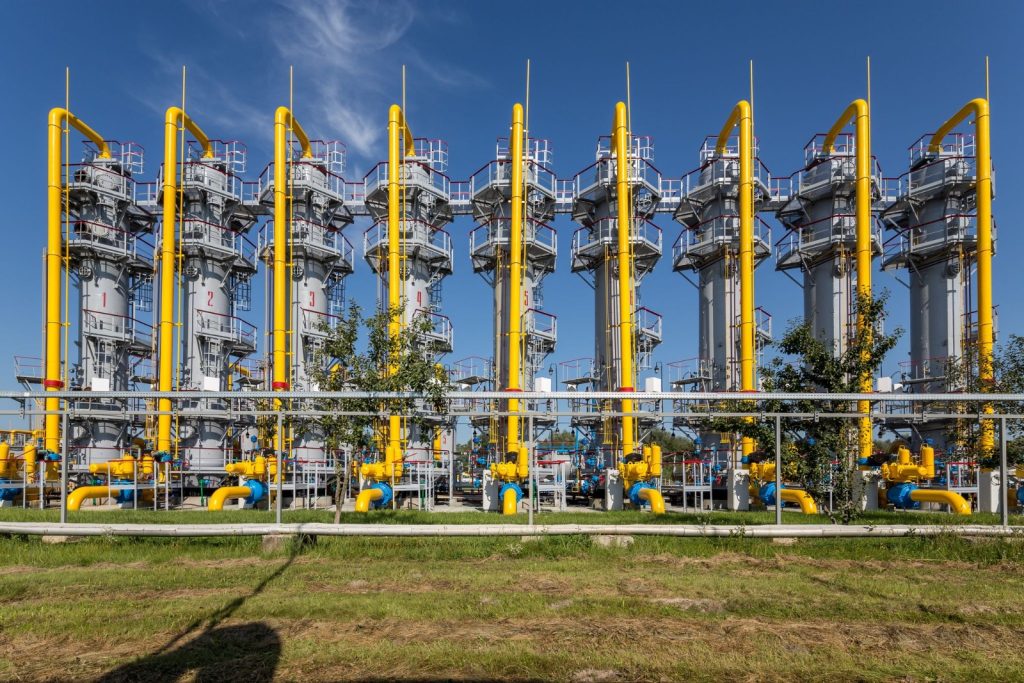
Halushchenko’s appointment became a source of friction with the independent members, including the chair, who resigned at the beginning of 2023. Huberte Bettonville said the board had come under repeated political interference during her 15-month tenure, failing to achieve tangible results46 She blasted unnamed board members who had “proved that they will not and cannot apply EU standards and corporate governance principles.”47 In September 2022, during Bettonville’s tenure, the board fired the CEO of MGU about a month after a high-ranking official in the Energy Ministry had demanded that the board appoint another ministry official to lead the company.48 The firing and the ministry official’s demand raised the specter of political interference, which, by undermining the transit operator’s independence, ultimately could have threatened the Gazprom contract, which brings in 80% of GTSOU’s annual revenue.49
Appointing a ministry official also would have violated the rule on conflicts of interest that requires at least one year between holding a government post and working at an SOE, which prompted the government to back off in the face of domestic and international pressure. Instead, a former colleague of one of the president’s advisers50 was appointed CEO.51 Interviewees also criticized the Energy Ministry and National Securities and Stock Market Commission, as shareholder and supervisory body respectively, for failing to carry out performance reviews at MGU or to hold the supervisory board accountable. The MGU supervisory board only published reports on its activity or compensation in 2018 but failed to do so after that46 despite calls for greater scrutiny of members, who by one assessment are paid better than those of their counterparts elsewhere in Europe.52
Ukraine’s international partners have called for an overhaul in the shareholding structure of GTSOU, and the IMF has made it a condition for disbursing a new tranche of funds.53 To that end, parliament passed a bill in late July 2023 to disband MGU and put GTSOU under the direct ownership of the Energy Ministry. The government intends to have the reforms in place, including a new charter, supervisory board, and CEO for GTSOU, by the end of October
Ukrenergo
Ukrenergo was established in 1998 from the merger of two SOEs, the National Dispatching Center and the Ukrelektroperedacha electricity company27 and currently acts as a natural monopoly, operating the electrical grid, balancing production and consumption, administering commercial metering, and coordinating cross-border electricity flow with neighboring EU countries.
In 2019, Ukrenergo was the fifth largest SOE by asset value and revenues in Ukraine and had approximately 8,000 employees.54 Its profitability has fluctuated over the years, thanks more to tariff policies than market conditions. In 2019, for example, its revenues grew substantially, but a year later it owed significant debts to Guaranteed Buyer, a state company that pays independent producers of renewable energy that is fed back into the grid. The government stepped in to help settle the debt in 2021 and as of 2023 company sources said it was once again making profit.
In November 2021, the Energy Community confirmed Ukrenergo had been unbundled in line with EU regulations, greenlighting the certification of the joint stock company as an operator independent of political interference.55 Over the years, its sole shareholder has been the Energy Ministry, then the Finance Ministry, then, in 2021, the Energy Ministry once again. As with GTSOU, its return to the Energy Ministry sparked concerns over possible conflicts of interest, as the ministry now owns a company in an industry for which it makes policy.
Ukrenergo’s corporate charter calls for a seven-member supervisory board, three of whom must be government representatives. In 2021, its members’ three-year terms expired, but before appointing a new panel, the government fired two members of the management board. It was a repeat of the Naftogaz maneuver months earlier and another usurpation of the authority of the supervisory board. Media reports suggested the move was intended to dilute the powers of the CEO Volodymyr Kudrytskyi, considered one of the main reformers of the Revolution of Dignity.56
Shortly afterward, the IMF reiterated the need to appoint a supervisory board at Ukrenergo, and the Cabinet did so.57 One member stepped down, however, and the board remained without a qualified majority as well as a chairman since 2021 at a particularly ill-timed moment: Ukrenergo had to steward major international donations to repair damage to the electrical grid from targeted Russian attacks, and the company plans to double Ukraine’s electricity interconnection capacity with neighboring Hungary, Moldova, Poland, Romania, and Slovakia, which would be a game-changer for Ukraine and the region, boosting security of supply and facilitating the exchange of clean electricity.26 At the end of August 2023, the company announced that one of the independent board members had been appointed as chairperson, although the vacancy for the seventh member was yet to be filled. Nevertheless, the appointment of the chairperson could help to sway votes in favour of the independents as the vote of the chair counts twice.
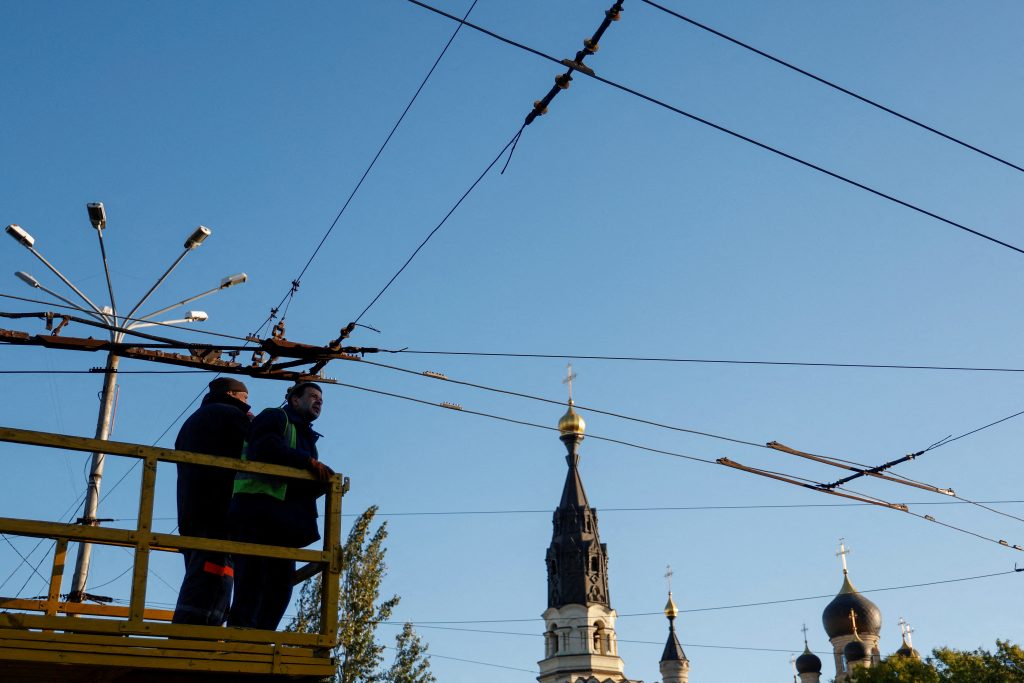
Interviewees said Ukrenergo has performed well recently, despite dire wartime conditions, noting that under Kudrytskyi, Ukraine disconnected from the Russian and Belarusian electricity grids in early 2022, hooking up to the European transmission infrastructure even as war raged.58 And despite Russia’s systematic attacks, Ukrenergo has been able to tap funds and source replacement equipment to repair damaged infrastructure and even posted a profit in the first half of 2022.59
Energoatom
Established in 1996 as a state enterprise, Energoatom generated more than half of Ukraine’s electricity before the Russian full-scale invasion. Its installed capacity prior to February 2022 was 13.8 gigawatts spread across the Zaporizhzhia, Rivne, Yuzhnoukrayinsk, and Khmelnytsky nuclear power plants.
In size and role in the market, Energoatom compares with the oil and gas incumbent, Naftogaz. In 2019, just as international financial institutions were pushing Ukraine to deregulate its gas and electricity market, the government required Energoatom to sell 90% of its electricity to end consumers (primarily households) at prices below the market, which led to uncompensated liabilities. The government subsequently reduced the requirement to 50%, with the remaining portion auctioned off, sometimes to large, well-connected buyers whose bids were lower than smaller competitors, ultimately costing the company potential revenue.27
Given the importance of Energoatom and concerns of potential corruption, the IMF set deadlines for the corporatization of the company by December 2021 and the establishment of a supervisory board by May 2022.57 Both dates were missed, and in February 2023 parliament finally adopted a law on the corporatization of Energoatom. The process, which involves carrying out an inventory of assets, producing a corporate governance charter, and providing documentation to the securities and exchange regulator, was underway as of June 2023.
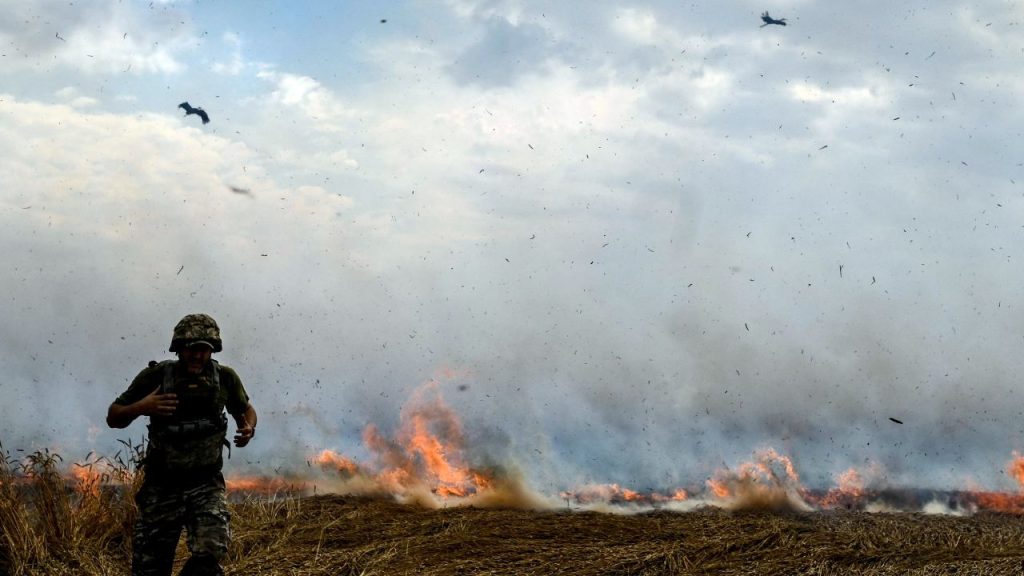
Meanwhile, interviewees said the company was expected to settle outstanding debts by mid-July 2023 and complete the corporatization process but there was no progress reported as of September 2023, and it is unclear whether the government would first seek to select a supervisory board, which would then appoint a new CEO in line with corporate governance principles.
The company will likely remain in the international and domestic spotlight, as it will be at the core of Ukraine’s efforts to rebuild its energy sector. The government’s recently adopted 2050 vision for the energy industry seeks to expand the country’s reliance on nuclear generation, including smaller reactors developed in Western countries such as the US and UK. That will require international financial support, which Western lenders may condition on Energoatom upholding corporate governance rules.
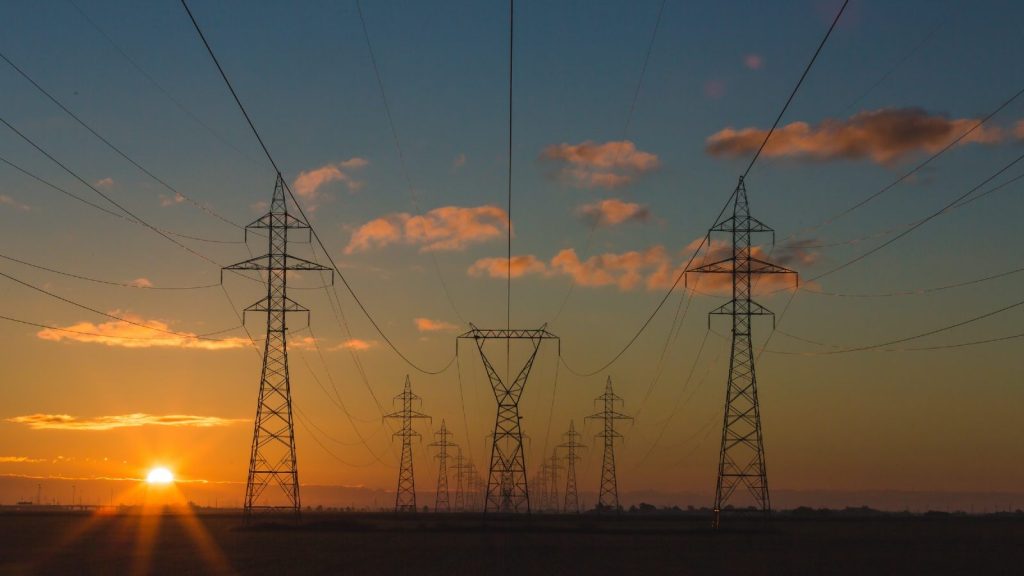
Recommendations
Uprooting systemic corruption and inspiring trust in institutions will be hard, but reforms are feasible.
1. The first, and possibly the most important step, is to enhance transparency.
Transparency projects such as DREAM can help civil society and international donors monitor projects, including in the energy sector, from the moment the money is donated until the projects are completed.
Wartime restrictions on reporting key energy market information, such as the level of gas in storage, should be regularly reviewed and lifted when conditions permit.
The Energy Community’s Ukraine Energy Market Observatory, an important tool that provides quarterly updates on legislative changes related to the Ukrainian energy market, should produce more frequent reports. Similarly, SOE Weekly, an invaluable newsletter on corporate governance in Ukrainian SOEs that is republished in the Kyiv Independent, should be syndicated in more domestic media outlets. Critically, all supervisory boards of SOEs should be required to publish annual performance reports, and members should be asked to declare their salaries. The Naftogaz supervisory board has been publishing such documents, but the board of MGU/GTSOU has issued no reports since 2018, raising questions about its activity and prompting criticism that members have pocketed generous salaries while making no tangible contributions to the gas grid operator.
Finally, the government and the energy regulator should consider providing English-language translations of legal decisions or market reports. Greater transparency would foster better oversight from civil society and international donors while discouraging corruption.
2. The next step is to improve accountability across SOEs.
Interviewees pointed out that although Ukraine introduced corporate governance reform in SOEs, no one committed to drive it forward. As a result, neither the National Securities and Stock Market Commission nor the shareholders of SOEs have sought to ensure supervisory board members meet key performance indicators. Regular KPI reviews, therefore, should be introduced, along with meaningful fines for failing to uphold corporate governance standards.
3. Equally important, corporate legislation needs to be clarified to avoid arbitrary interpretations of laws.
Laws offer unclear guidance on the application of corporate governance rules, leading to conflicting interpretations of the shareholding structure of SOEs, the appointment and dismissal of CEOs, or the publication of financial reports.
The case of Naftogaz, in which the Cabinet temporarily dismissed the supervisory board and usurped its authority to fire the CEO in April 2021, shows how unclear legislation has allowed rules to be bent.

In addition, interviewees said Zelenskyy appears to be unaware of the importance of corporate governance rules in SOEs and of recent developments that have hindered their implementation. They said the highly respected president would have considerable clout to single-handedly drive the implementation of corporate governance in SOEs if he were sufficiently attuned to the issue, and that Ukraine’s international partners should raise it during their meetings with him.
4. The streamlining of corporate law should happen in tandem with the reform of commercial courts. A board of independent experts should supervise the appointment of judges in these courts and their performance should be reviewed regularly.
Similarly, considering the importance of fighting corruption as a key condition to Ukraine’s EU membership, a panel of independently selected EU judges could be set up to monitor the activity of anti-corruption bodies such as NABU, SAPO, and the High-Anticorruption Court to prevent potential abuses.
5. International financial institutions, which have been supporting Ukraine in recent years, should continue to condition the disbursement of funds on implementing corporate governance rules in SOEs.
Finally, it is important to note that even if all of these recommendations are taken up, corruption remains a risk as long as markets are distorted by subsidies, capped tariffs, and heavy-handed regulation.
As long as schemes allow some companies to make undue profit, buying resources at below-market prices and selling them at a premium, the industry will find it difficult to dislodge entrenched rent-seeking practices and inspire faith in SOEs. It is therefore important that corporate governance reform in SOEs happens alongside reform in the wider economy and the energy sector.
Acknowledgments
This report benefitted from expert insights of current or former members of the Energy Community, EU, OECD, Ukrainian energy SOEs, Ukrainian members of parliament, corporate governance analysts, digital entrepreneurs, and Ukrainian and EU-based electricity and natural gas traders.
The author wishes to extend her special thanks to Anders Åslund, Huberte Bettonville, Olga Bielkova, Walter Boltz, Andriy Boytsun, Dirk Buschle, Oleksandr Lysenko, Sergiy Makogon, Viktor Nestulia, Aliona Osmolovska, Clare Spottiswoode, Torsten Woellert, Andrii Zhupanyn, and others who did not wish to be named but who contributed equally valuable comments.
Deputy Energy Minister Farid Safarov as well as deputy head of the office of the president of Ukraine and Naftogaz supervisory board member Rostyslav Shurma were also invited to take part in interviews but did not respond.
Author Biography
Aura Sabadus is a Non-Resident Senior Fellow with the Democratic Resilience Program at the Center for European Policy Analysis and an energy journalist with ICIS, UK.
- Ukrainian State-Owned Enterprises Weekly – Issue 95 Kyiv Independent https://kyivindependent.com/ukrainian-state-owned-enterprises-weekly-issue-95/ [↩]
- The companies surveyed for this paper include the gas incumbent Naftogaz, the gas and electricity transmission system operators GTSOU and Ukrenergo and the nuclear producer Energoatom. [↩]
- Interviewees include former and existing members of energy SOEs, MPs, corporate governance analysts, EU energy market experts, and energy traders [↩]
- “Naftogaz initiates public discussion on corporate governance principles in state-owned enterprises”, Naftogaz Group, 5 December 2014 https://www.naftogaz.com/en/news/naftogaz-zaproponuvav-dlya-suspilnogo-obgovorennya-kontseptsiyu-schodo-pryntsypiv-korporatyvnogo-upravlinnya-v-ukrainskyh-derzhavnyh-pidpryemstvah [↩]
- Corporate Governance in Transition Economies Ukraine Country Report, EBRD, December 2017. [↩]
- The primary sources of corporate governance legislation in Ukraine are the Law on Joint Stock Companies; the Law on Banks and Banking Activity; the Law on Accounting and Financial Reporting in Ukraine, the Law on State Regulation of the Securities Market in Ukraine; the Civil Code; and the Law on Financial Services and State Regulation of Financial Service Market [↩]
- ‘OECD Guidelines on Corporate Governance of State-Owned Enterprises, 2015 Edition,’ OECD https://www.oecd-ilibrary.org/docserver/9789264244160-en.pdf?expires=1692465775&id=id&accname=guest&checksum=D0F0C2D27F34B7D880FB4943FAE0AF6F [↩]
- Fianna Jesover and Grant Kirkpatrick, “The revised OECD principles on corporate governance and their relevance to non-OECD countries,” OECD, https://www.oecd.org/corporate/ca/corporategovernanceprinciples/33977036.pdf [↩]
- Corporate Governance in Transition Economies Ukraine Country Report, EBRD, December 2017 [↩]
- EU countries such as Greece and Italy as well as the newer members, Bulgaria and Romania have also been struggling to implement corporate governance rules in SOEs, as pointed out by John Lough in a 2021 Chatham House report on Ukraine’s system of crony capitalism [↩]
- John Lough, “Ukraine’s system of crony capitalism. The challenge of dismantling ‘systema’ “, Research paper Russia and Eurasia, Chatham House, July 2021 https://www.chathamhouse.org/sites/default/files/2021-07/2021-07-01-ukraine-crony-capitalism-lough.pdf [↩]
- Lough, Ukraine’s Crony Capitalism, 4-5. [↩]
- Over the years, these factors have given root to crony capitalism, characterized by a high concentration of capital in the hands of a few business owners who have benefited from strong political connections, fragile institutions, and a weak rule of law. ((John Lough, “Ukraine’s system of crony capitalism. The challenge of dismantling ‘systema’ “, Research paper Russia and Eurasia, Chatham House, July 2021 https://www.chathamhouse.org/sites/default/files/2021-07/2021-07-01-ukraine-crony-capitalism-lough.pdf [↩] [↩]
- Lough, Ukraine’s Crony Capitalism, 4-5. [↩] [↩]
- Aura Sabadus, “Ukraine elections 2019: What next for gas market reform?” ICIS, March 2019, https://s3-eu-west-1.amazonaws.com/cjp-rbi-icis/wp-content/uploads/sites/7/2019/03/22151847/ICIS_insight_Ukraine_elections_2019.pdf [↩]
- Svitlana Pyrkalo, “EBRD finances key gas pipeline in Ukraine,” EBRD, 15 December 2014, https://www.ebrd.com/news/2014/ebrd-finances-key-gas-pipeline-in-ukraine-.html [↩]
- Nevertheless, Boytsun recounted how once vested interests began to grasp the implications of selecting independent supervisory boards, they blocked the appointment of such a board at the Ukrainian railways company, Ukrzalyznitsia. [↩]
- ‘Corporate governance reform in Ukraine’s defence industry: from initiative to implementation,’ NAKO, 26 March 2021 https://nako.org.ua/en/research/vprovadzhennia-standartiv-korporatyvnoho-upravlinnia-v-oboronniy-promyslovosti-ukrainy-vid-initsiatyvy-do-implementatsii [↩]
- Diane Francis, ‘Naftogaz CEO Andriy Kobolyev: The likelihood of Russia helping us is zero,’ Atlantic Council, 19 December 2019. [↩]
- The requirement that Naftogaz supply cheap gas to households benefitted gas distribution companies (oblgazes), most of which were operated by RGC, a company owned by the exiled oligarch Dmytro Firtash. They received natural gas at subsidized prices and sold it on to industrial consumers at higher market costs. [↩]
- Sofia Telishevska, “The state nationalized critical enterprises ‘Ukrnafta’, ‘Motor Sich’ and a number of others,” Babel, 7 November 2022 https://babel.ua/en/news/86703-the-state-nationalized-critical-enterprises-ukrnafta-motor-sich-and-a-number-of-others [↩]
- “Ukrainian security agency says it suspects tycoon Firtash of embezzlement,” Euractiv, 16 May 2023 https://www.euractiv.com/section/enlargement/news/ukrainian-security-agency-says-it-suspects-tycoon-firtash-of-embezzlement/ [↩]
- Yurii Nikolov, “Halushenko’s Group: Profile,” ZN,UA, 6 October 2022 https://zn.ua/eng/halushchenkos-group-profile.html [↩]
- The new CEO of GTSOU worked with the presidential adviser Rostyslav Shurma at MetInvest [↩]
- Patrick Wintour, “High stakes for Ukraine as clampdown on corruption comes under scrutiny,” The Guardian, 18 April 2023 https://www.theguardian.com/world/2023/apr/18/high-stakes-for-ukraine-as-clampdown-on-corruption-comes-under-scrutiny [↩]
- Aura Sabadus, “Ukraine plans expansion of ENTSO-E interconnection, Ukrenergo CEO,” ICIS, 23 February 2023 https://www.icis.com/explore/resources/news/2023/02/23/10858102/ukraine-plans-expansion-of-entso-e-interconnection-ukrenergo-ceo/?fbclid=IwAR1CiHpnJ6m04tERVe-NDiRKjJJ3KiMZqCf22I7-WKaz5GkTLF_ttFQUzkk [↩] [↩]
- “OECD review of corporate governance of state-owned enterprises. Ukraine.” OECD, 2021 https://www.oecd.org/corporate/SOE-Review-Ukraine.pdf [↩] [↩] [↩]
- “Corruption perceptions index”, Transparency International, 2022 https://www.transparency.org/en/cpi/2022/index/ukr [↩]
- “Corruption perceptions index”, Transparency International, 2022 https://www.transparency.org/en/cpi/2022/index/ukr [↩]
- Edward Lucas, “Ukraine may win the war but lose the peace,” The Times, 18 June 2023 https://www.thetimes.co.uk/article/ukraine-may-win-the-war-but-lose-the-peace-2f9ntt7kn [↩]
- Sebastian Shehadi, “Ukraine urgently needs political risk insurance to unlock investment,” Investment Monitor, 1 November 2022 https://www.investmentmonitor.ai/special-focus/ukraine-crisis/ukraine-needs-political-risk-insurance-foreign-investment/ [↩]
- Ukraine Energy Market Observatory, Energy Community, 2023 https://www.energy-community.org/Ukraine/observatory.html [↩]
- “About Naftogaz Group,” Naftogaz, https://www.naftogaz.com/en/about-naftogaz [↩]
- Aura Sabadus, “Ukraine’s Naftogaz outgoing chair, new CEO debate board dismissal, financial performance, company outlook,” ICIS, 6 May 2021. https://www.icis.com/explore/resources/news/2021/05/06/10636077/ukraine-s-naftogaz-outgoing-chair-new-ceo-debate-board-dismissal-financial-performance-company-outlook/ [↩]
- Sabadus, Naftogaz Company Outlook. [↩]
- “Fitch affirms Ukraine’s Naftogaz at ‘RD’ amid ongoing restructuring,” Fitch Ratings, 8 February 2023 https://www.fitchratings.com/research/corporate-finance/fitch-affirms-ukraine-naftogaz-at-rd-amid-ongoing-restructuring-08-02-2023 [↩]
- “Board of Naftogaz resigns, cites reform blockage by govt,” Reuters, 19 September 2017, https://www.reuters.com/article/ukraine-naftogaz-board-idUSL5N1M05DU [↩]
- “A criminal case was initiated against the management of ‘Naftogaz’ – Kobolev” Hromadske, 8 October 2020, https://hromadske.radio/news/2020/10/08/proty-kerivnytstva-naftohazu-vidkryly-kryminal-nu-spravu-koboliev [↩]
- ‘Regional gas company trying to divert public attention from gas thefts, says Naftogaz,’ Kyiv Post, 26 July 2018, https://archive.kyivpost.com/ukraine-politics/regional-gas-company-trying-to-divert-public-attention-from-gas-thefts-says-naftogaz.html [↩]
- “Oleksiy Tiutiunnyk: The authorities should know that the distorted gas market will not lead Ukaine to Europe,” RGC, 11 April 2023 https://rgc.ua/en/news/tehnologiji/id/oleksij-tjutjunnik-vlada-maje-znati-scho-spotvoren-42387 [↩]
- Aura Sabadus, “Ukraine elections 2019: What next for gas market reform?” ICIS, March 2019 [↩]
- Dan Peleschuk, “Ukraine’s anti-graft prosecutor says rule of law trumps trophy convictions,” Reuters, 12 May 2023 https://www.reuters.com/world/europe/ukraines-anti-graft-prosecutor-says-rule-law-trumps-trophy-convictions-2023-05-12/ [↩]
- Aura Sabadus, “EU officials call for probe amid Ukraine gas TSO political pressure claims,” ICIS, 10 June 2020 https://www.icis.com/explore/resources/news/2020/06/10/10517835/eu-officials-call-for-probe-amid-ukraine-gas-tso-political-pressure-claims/ [↩]
- Aura Sabadus, “Ukraine energy ministry under pressure to recall gas TSO board appointment amid procedure concerns,” ICIS, 25 November 2021 https://www.icis.com/explore/resources/news/2021/11/25/10709987/ukraine-energy-ministry-under-pressure-to-recall-gas-tso-board-appointment-amid-procedure-concerns/ [↩]
- Gary Peach, “Ukraine opposition takes aim at unbundling,” Energy Intelligence, 23 June 2020 https://www.energyintel.com/0000017b-a7da-de4c-a17b-e7dae9db0000 [↩]
- Aura Sabadus, “Ukraine’s ministry of energy GTSOU plans raise criticism,” ICIS, 25 April 2023 https://www.icis.com/explore/resources/news/2023/04/25/10878902/ukraine-s-ministry-of-energy-gtsou-plans-raise-criticism/ [↩] [↩]
- Anastasiya Mosorko, “Main Gas Pipelines of Ukraine has changed the CEO and the chairman of the Supervisory Board,” Mind.ua, 4 April 2023, https://mind.ua/en/news/20255668-main-gas-pipelines-of-ukraine-has-changed-the-ceo-and-the-chairman-of-the-supervisory-board. [↩]
- Mykola Teslia, “Energy ministry sends western partners packing. Why so?” ZN,UA, 18 August 2022 https://zn.ua/eng/energy-ministry-sends-western-partners-packing-why-so.html [↩]
- Aura Sabadus, “Ukraine’s gas transit in question after removal of GTSOU CEO by supervisory board,” ICIS, 22 September 2022 https://www.icis.com/explore/resources/news/2022/09/22/10808298/ukraine-gas-transit-in-question-after-removal-of-gtsou-ceo-by-supervisory-board/ [↩]
- Halina Yermolenko, “Metinvest appointed new CEOs at three enterprises,” GMK Center, 5 January 2023 https://gmk.center/en/news/metinvest-appointed-new-ceos-at-three-enterprises/ [↩]
- The new CEO, Dmytro Lyppa worked for the steel and mining group, MetInvest together with Rostyslav Shurma, the current deputy head of the office of the president and the newly government-appointed supervisory board member of Naftogaz [↩]
- Sabadus, Ministry of Energy GTSOU. [↩]
- “IMF and Ukrainian authorities reach staff-level agreement on the first review under extended fund facility (EFF) arrangement,” IMF, 30 May 2023 https://www.imf.org/en/News/Articles/2023/05/30/pr23185-ukraine-imf-and-ukrainian-authorities-reach-staff-level-agreement-eff [↩]
- OECD, “OECD Review of the Corporate Governance of State-Owned Enterprises: Ukraine,” 2021, https://www.oecd.org/corporate/SOE-Review-Ukraine.pdf. [↩]
- “Ukraine: National Commission for State Regulation of Energy and Public Utilities of Ukraine certifies Ukrenergo as a TSO,” CMS Law, 23 December 2021 https://cms-lawnow.com/en/ealerts/2021/12/ukraine-national-commission-for-state-regulation-of-energy-and-public-utilities-of-ukraine-certifies-ukrenergo-as-a-tso [↩]
- Andriy Boytsun, ‘Ukraine State-Owned Enterprises Weekly – Issue 55,” Kyiv Independent, 12 December 2021 https://kyivindependent.com/andriy-boytsun-ukrainian-state-owned-enterprises-weekly/ [↩]
- “Ukraine first review under the stand-by arrangement,” IMF European Department, 24 November 2021 https://www.elibrary.imf.org/view/journals/002/2021/250/article-A001-en.xml [↩] [↩]
- Aura Sabadus, “Ukraine disconnects from Russian electricity grid hours before military invasion,” ICIS, 24 February 2022 https://www.icis.com/explore/resources/news/2022/02/24/10737213/ukraine-disconnects-from-russian-electricity-grid-hours-before-military-invasion/ [↩]
- ‘Private Joint Stock Company, ‘National Power Company Ukrenergo’ Unaudited Interim Condensed Consolidated Financial Statements for the Six Months Ended 30 June 2022, Ukrenergo,” June 2022 https://ua.energy/wp-content/uploads/2023/03/FS-Ukrenergo_H1_22fse_conso_final.pdf [↩]



